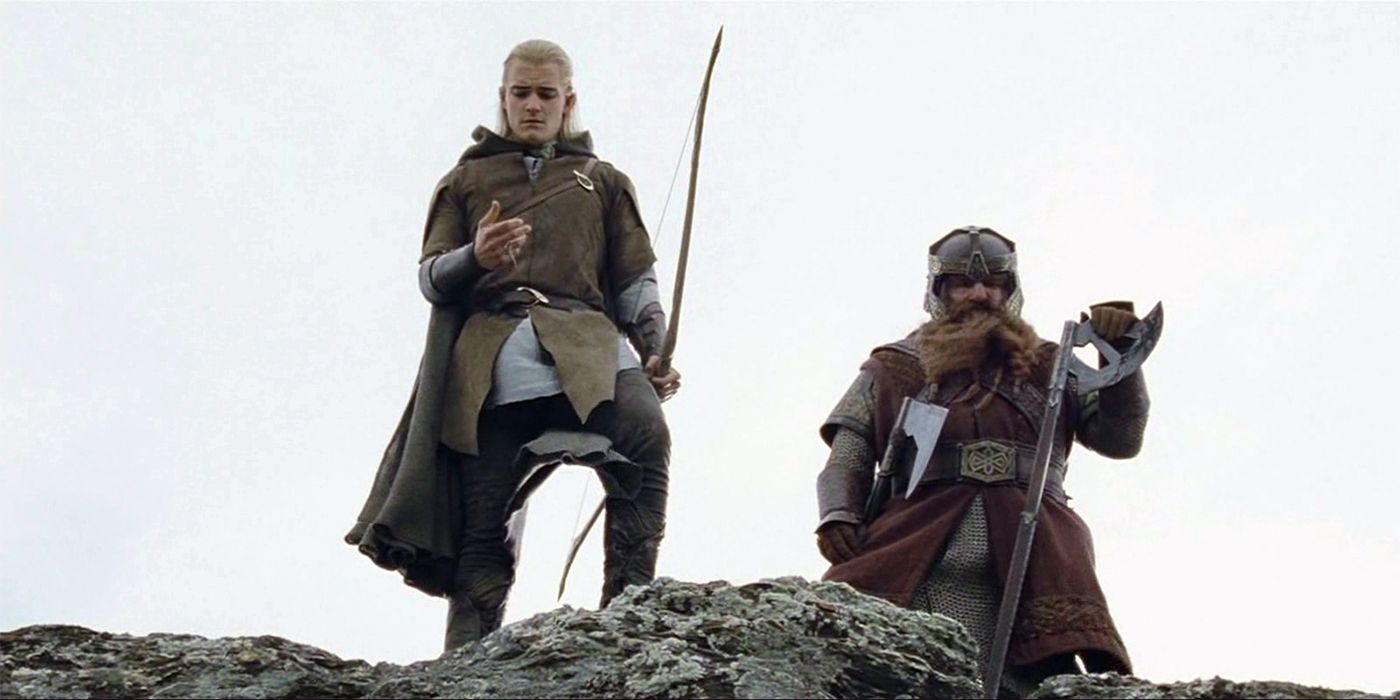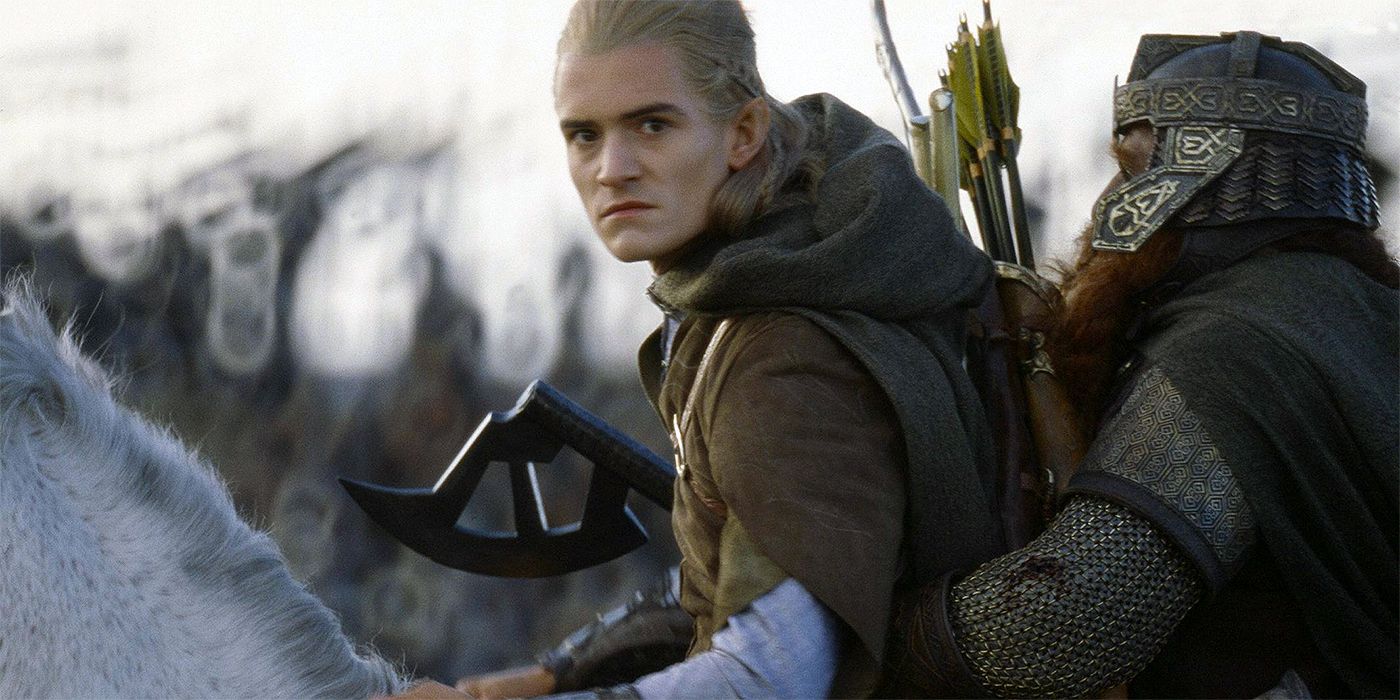Why Did Legolas Continue to Fight
The members of the Fellowship in The Lord of the Rings forge an unbreakable bond while on their mission to destroy the One Ring. Although at first glance, the band of adventurers seems like an unlikely collection; nearly half of the group are Hobbits, creatures infamous for their quiet lives. Among the odd bunch is an even stranger pair in the Elf Legolas and the Dwarf Gimli. Historically, there is much strife between the Elves and the Dwarves, and yet the bond between Legolas and Gimli becomes one of the strongest ever seen in all of Middle-earth.
The son of the the son of the Elf king Thranduil, Legolas comes from Mirkwood, while Gimli is the son of Gloin, who traveled with Bilbo during the events ofThe Hobbit.
Why Gimli and Legolas' Friendship Was So Unusual in Middle-earth

The broken alliance between the Elves and Dwarves of Middle-earth starts with coveting a particularly beautiful necklace. According to The Silmarillion, King Thingol of the Teleri Elves, who previously had a good relationship with Dwarves, commissioned the Dwarves of Belegost to set the Silmaril, a precious jewel, be designed into a beautiful necklace.
When work on the necklace was complete, the Dwarves wanted to keep the piece for themselves, and the situation only grew worse from there. The Elves and the Dwarves have long memories, and hold onto their grudges; it wasn't until the War of the Ring that the relationship between the two began to heal. That's most clearly seen through the growing, and eventually unbreakable, bond that flourishes between Legolas and Gimli.
Initially, Legolas and Gimli didn't get along; in fact, in the beginning, they were quite hostile with each other. However, that animosity grew into friendship and playful banter. As that relationship bloomed, they competed against each other, most obviously in comparing their kill counts during battles. That competition shows a dynamic aspect to their relationship: They challenge each other, but only in a good-natured manner. They are not only competitive, though -- they're also protective. When they come across the Riders of Rohan, Legolas doesn't hesitate to step in and defend Gimli from harm. The two develop a deep bond in the series that lasts long beyond the war's end.
Gimli and Legolas Spent the Rest of Their Lives Together

After the War of the Ring, Gimli and Legolas remained travel companions. Legolas traveled with Gimli to Helms's Deep, where he became the first Lord of the Glittering Caves. Even after Gimli became a Dwarf Lord, he continued to travel with his Elf friend. They ventured through Fangorn Forest and continued their adventures together. Their biggest escapade of all was to the Undying Lands: Gimli is the first and only Dwarf to make that journey. Legolas built a ship in Ithilien, and they traveled together across the sea, never to return to Middle-earth.
While it was likely not J.R.R. Tolkien's intention to queer-code Legolas and Gimli's relationship, there is valid evidence for such interpretation. Their relationship is outside the social norm and not totally understood by their peers, and yet their bond remains unbreakable. They are constantly paired off together inThe Lord of the Rings, and they are repeatedly attentive to each other's needs and health. Considering all of that, there is a strong case for fans to interpret their relationship as queer and romantic, despite the lack of explicit confirmation within the text.
Legolas and Gimli have responsibilities and lives within their respected communities: Legolas is the son of a king, and Gimli is a lord of a mountain. Yet they spend a considerable amount of their time post-war with each other. By traveling together to the Undying Lands, they commit themselves to the other beyond the constraints of Middle-earth. Regardless of if there actually was any kind of romantic or sexual component to their relationship, they were basically married. They knew each other well and cared for each other long past any kind of alliance or moral obligation.
Source: https://www.cbr.com/lord-of-the-rings-legolas-married-gimli/
0 Response to "Why Did Legolas Continue to Fight"
Post a Comment